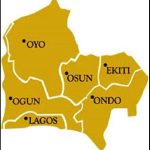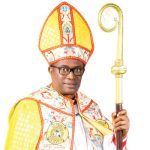
As Nigeria marks the first anniversary of President Bola Tinubu’s administration on May 29, some lecturers and students have complained bitterly about the incompetency of the leadership at the Federal Ministry of Education.
In 2023, the Federal Government declared May 29, work work-free day for the presidential inauguration and that was the day Tinubu’s government was inaugurated.
May 29, also called Democracy Day is a national public holiday in Nigeria to commemorate the restoration of democracy in 1999, commemorated on 12 June.
While analysing the stance of the education sector in the last one year, Prof. Francis Egbokhare, a prolific scholar at the University of Ibadan, said the government had given the leadership of the education sector to low levels.
“It appears that the top man at the government has delegated responsibilities to lower levels that are not aligned with their overall goals, necessitating drastic action. The institutions are operating on a pay-as-you-go basis with no sense of coherence; everything is distorted. If this continues, public universities may cease to exist within the next three years due to compromises, overwork, and parallel sessions without supervision.
“There is a breakdown in the mentality of Nigerian intellectuals, and there must be strong leadership to restore order. Some policies have been reversed, like the IPPIS, which is a good one, and the government has started paying for the last strike, but the effects of the no-work policy have caused more damage to the system,” he said.
He said the composition of the recently released Governing Councils for some universities showed that the ministry did not understand what is obtainable in the sector, saying that the student loan started on the wrong foot too before several corrections were made.
“In the education sector, it seems there is no supervision. It took over a year to constitute the governing councils, which was a dangerous oversight. This delay removed the administrative capacity of the universities. No matter how diligent a Minister of Education is, they cannot control and regulate local issues effectively. This created a significant gap in university administration.
“The laws to set up councils in these schools were not followed, and the composition of the councils was less than impressive, indicating that corrections need to be made. If the machinery of governance is not well-oiled, failures will continue to occur, as we saw with the councils. The student loans were also mishandled and needed correction. There seems to be a problem with capacity, motivation, or perhaps laziness, indicating that something is not working well.”
Egbokhare, also said the government needed to address the union issues and create a strategy to meet their needs.
“The interface between the unions and the government is not working well, and something must be done to prevent another strike. The government needs to address the unions’ demands strategically rather than ignoring them. Failure to respond to calls and letters will lead to universities deteriorating like public primary schools.”
National President, Academic Staff Union of Universities, Prof. Emmanuel Osodeke, explained that the Governing Council list was hurriedly compiled, and many of the appointees did not belong to a university system.
Osodeke added that ASUU had reviewed the list, and many of the appointees were political officers with no relevant experience or qualifications.
“Some couldn’t win any election or hold any significant positions anymore. There is one individual whose background is particularly concerning; he is an ex-prisoner. How can you appoint an ex-prisoner as a chancellor of a university in a country like Nigeria?
“Some appointees were chosen based on sentiment and have no notable achievements or experience in bureaucracy or business. Stakeholders must be involved in the review process, including academics, the union, and the university community. Otherwise, these appointees will see their positions as political offices and seek ways to profit from them. Our union is conducting thorough checks on these individuals,” he said.
A post-graduate student of the University of Ibadan, who spoke to The PUNCH, Olatunji Emmanuel, lamented that despite the budget increase, the education budget remained far below the UNESCO recommendation of 26 per cent of the national budget for education, saying this had affected resources, infrastructure, and the quality of education.
“The abduction of students and attacks on schools have posed a significant threat to education accessibility and safety.
“Electricity in educational institutions has been inconsistent, affecting students’ ability to read, charge devices, and conduct practicals. Also, the high electricity tariffs in institutions can lead to increased tuition fees, as schools may spread the costs on students to meet payment obligations, further exacerbating financial pressures on students.
“Additionally, the increase in fuel prices has significantly increased transportation costs, many students have resorted to trekking. This physical exertion often leaves students exhausted, hindering their ability to concentrate and assimilate information in class effectively.”
A 300-level student of Library and Information Studies at Adekunle Ajasin University, Akungba Akoko, Ondo State, Oluwafemi Oluwanishola, explained that the economic downturn had led to increased tuition fees, transportation costs, and living expenses, making it difficult for many parents to pay school fees.
He revealed that this had led to some students dropping out.
However, both Oluwanisola and Emmanuel commended the student loan initiative.



